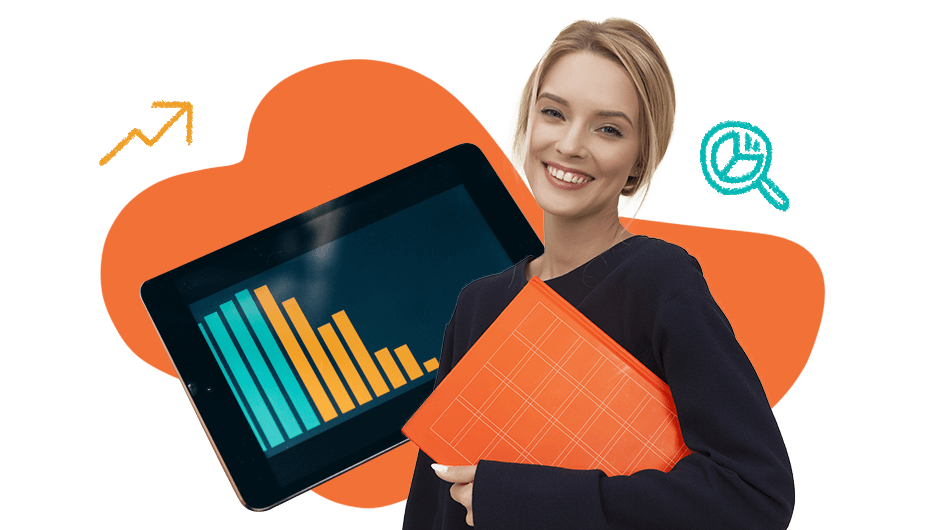Data analytics can be implemented in a virtual classroom session by tracking student interactions and behaviors during online learning sessions. Analyzing this data provides valuable insights into the effectiveness of online sessions and brings benefits such as increased student engagement, improved student performance, and the ability to make informed decisions about teaching methods and instructional materials. By leveraging the power of data analytics, teachers can create a more personalized virtual learning experience for their students.
What are the data points that deserve your attention?
Analytics not only benefits the user but also helps the educational institution to realize its aims more effectively. Schools need to pay attention to the factors defining their analytics as they decide the accuracy of data findings. In a virtual classroom, various types of data can be analyzed, including:
- Learner engagement data consists of participation rates, completion rates, time spent in the classroom, etc.
- Learning outcomes data: exam scores, assessment results, and other metrics that measure the effectiveness of the learning process.
- Technical performance data includes network connectivity, platform usage statistics, and other technical issues that impact the virtual learning experience.
- User behavior data shows how learners interact with the virtual classroom platform, such as clickstream data, page views, and other similar metrics.
- Demographic data includes information about the learners, such as age, gender, location, and other similar data points.
By analyzing this data, educators can gain insights into the strengths and weaknesses of their virtual classroom and make data-driven decisions to improve the overall learning experience.
What is the aim of data analytics in the first place?
Transparency is the critical factor that impacts whether data analytics should be integrated into a virtual classroom setting. Only when both student and teacher performance is transparent can the virtual classroom experience improve. Here are just some of the use cases of data analytics in an online environment:
- Data analytics enables teachers to make appropriate decisions to increase the efficiency of the class.
- They allow accurate performance reviews and ranking of the students.
- Students also get the chance to view their historical data and compare their performance.
- Data analytics acts as an apt self-assessment tool for both learners and tutors.
- Parents have a clear picture of the knowledge and performance of their kids.
- When accurate insights are extracted, the data enhances overall virtual communication and collaboration.
How can teachers use data analytics in the virtual classroom?

Tracking Student Engagement
Teachers may utilize analytics to track student engagement in real-time during online classes. For example, they can use tools that track students’ activity levels, such as how long they spend on specific tasks or how frequently they raise their hands to participate in discussions. VEDAMO’s virtual classroom also provides teachers with a distraction monitoring tool that shows whether students are not engaging in other activities on the Internet during online sessions.
Assessing Student Performance
Tutors can use data analytics to track and assess student performance over time. For example, they can use tools that generate reports on student grades, test scores, and progress toward learning objectives. These reports enable learners and teachers to get quick feedback on different activities.
An attendance report can be generated to aid the teachers in monitoring their student presence and punctuality. Class performance reports may help tutors to audit student engagement, knowledge, and retention. In addition, technical reports can help track any technical glitches during the session, along with possible reasons for the same. Overall, data analytics facilitates teachers to identify students struggling with specific concepts and provide targeted support to help them improve.
Improving Classroom Management
Data analytics can also be used to help teachers manage their virtual classrooms more effectively. For example, tutors may use tools that monitor student behavior and participation during virtual classes, which can help identify disruptive behavior and help teachers address it in real-time.
Personalizing Learning

Teachers can use data analytics to personalize learning experiences for their students. A customized approach may be achieved by integrating artificial intelligence (AI) into the virtual classroom.
AI can analyze students’ learning styles, strengths, weaknesses, and interests to make personalized recommendations for educational resources, activities, and assignments. These capabilities help teachers to provide students with a more tailored learning experience suited to their individual needs and preferences.
Evaluating the Effectiveness of Instructional Strategies
Virtual classroom data might also be used to evaluate the effectiveness of instructional strategies. Teachers can experiment with different teaching approaches, each for 30 days. Then, they can perform exam sessions evaluating students’ retention for that specific period. By assessing learners’ engagement and performance in each period through data analytics, the educator may pick the one bringing the best results.
The implementation of cutting-edge technology (AI) into the virtual classroom experience is a major step toward producing high-quality data analytics. From better student performance through enhanced collaboration to improve resource allocation, such data helps tutors to deliver personalized learning in the best possible way. With valuable insights, educators can align their teaching approach to fill learning gaps, improve student retention and achieve high-performance metrics.
